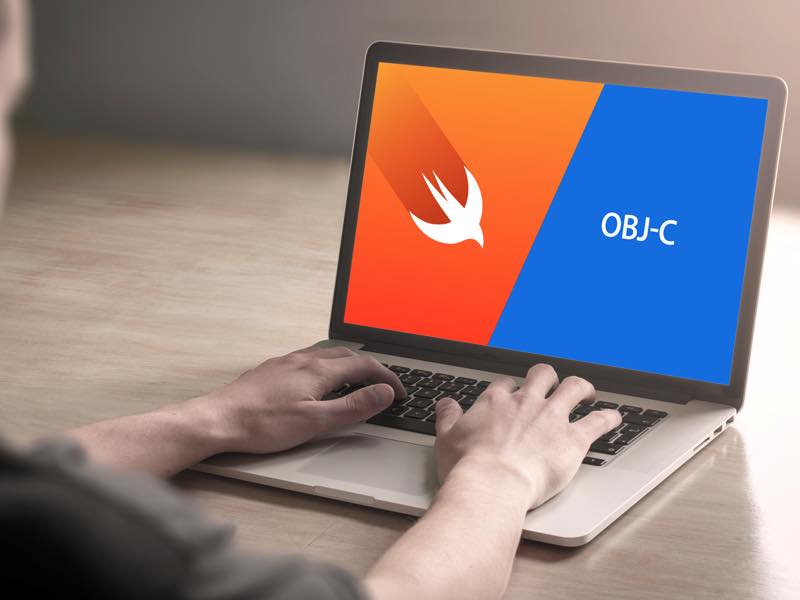Are you a beginner in iOS development but need to know which computer language is the best to start with? So, you have landed on the right place to start!
Before delving into iOS app development, it’s crucial for the developers to choose the correct programming language. It is more than knowing code; for example, some languages might excel in handling complex mathematical calculations, while others might be better suited for building user interfaces.
Hence, to cater, the two leading computer languages, Objective-C and Swift. But which one is the best that one can have? In this article, we will thoroughly analyze the advantages and drawbacks of each so that you can pick the right option for your net app development project.
What is Objective C?
Objective-C is a powerful programming language primarily used for developing applications on Apple’s iOS and macOS platforms. Prior to Swift the Objective C was known as the main language for Apple development. Objective-C enables objects to communicate with each other, facilitating the creation of complex applications. It incorporates features like message passing, which allows objects to interact at runtime.
What is Swift?
Swift is a modern, powerful programming language developed by Apple for iOS, macOS, watchOS, and tvOS app development. It combines high-performance capabilities with an easy-to-read syntax, making it an ideal choice for building robust and intuitive applications. Swift’s safety features, including optional types and automatic memory management, enhance code reliability and reduce errors.
What is difference Objective C VS Swift?
Whether it is Objective C or Swift, both come with unique strengths and characteristics that significantly impact speed, safety, and performance. Below, we have provided a detailed comparison to help you comprehend both languages before choosing the one for you.
Performance & Speed
Objective C is designed to produce dynamic results; hence, due to its unique nature, you will find a bit slower. On the other hand, Swift is designed on static type and modern optimization that brings high-end performance, making it generally faster than Object C.
Code Safety
The second most crucial aspect that one should consider is code safety. If your primary concern is code safety, then you should better opt for Swift. It comes with features like optional, strong typing, and automatic memory management, making it a perfect pick for reducing runtime error.
Convenient Maintenance
Objective C features verbose syntac and manual memory management making it quite older codease compared to their Swift. However Swift on the other hand comes with concise syntax powered by automatic memory management making it a better solution to acquire maintainable code and faster development.
Syntax:
Objective-C employs a verbose syntax, often necessitating extensive boilerplate code, especially when dealing with strings and collections. Conversely, Swift boasts a concise and expressive syntax, markedly reducing code verbosity. This enhances code readability, fostering heightened developer productivity.
Code Length & Compatibility:
Objective-C frequently demands more lines of code for equivalent functionality due to its verbose nature. In contrast, Swift facilitates shorter, more expressive code, expediting development. Additionally, Swift maintains backward compatibility with Objective-C, allowing for seamless integration within existing projects.
Memory Management:
Objective-C relies on manual memory management, which, if mishandled, can lead to memory leaks or crashes. Swift addresses this with automatic reference counting (ARC), effectively managing memory and significantly reducing the likelihood of memory-related issues.
Libraries Support:
Objective-C benefits from an extensive library ecosystem amassed over the years, encompassing a broad spectrum of functionalities. While Swift is progressively gaining popularity, it is still in the process of catching up with Objective-C in terms of library support. Nevertheless, Swift seamlessly interfaces with existing Objective-C libraries, bridging the gap.
Objective C VS Swift
Comparison Table
| Aspect | Objective-C | Swift |
| Performance & Speed | Runtime performance, but slower. | Designed for high performance. |
| Code Safety | Lacks modern safety features. | Prioritizes safety. |
| Convenient Maintenance | Older codebases may require more work. | Clean, concise syntax for easier maintenance. |
| Syntax | Verbose syntax with boilerplate code. | Concise, expressive syntax. |
| Code Length & Compatibility | Often, more lines of code. | Shorter, more expressive code. |
| Memory Management | Manual memory management. | Automatic reference counting (ARC). |
| Libraries Support | Vast library ecosystem. | Growing library support. |
Conclusion
Before pouring effort into a programming language take some time and consider your projects needs and requirements. Objective-C offers a robust library base, ideal for legacy projects. Swift, with its modern syntax and safety features, is great for new development. Select the language that aligns best with your goals and get coding!

